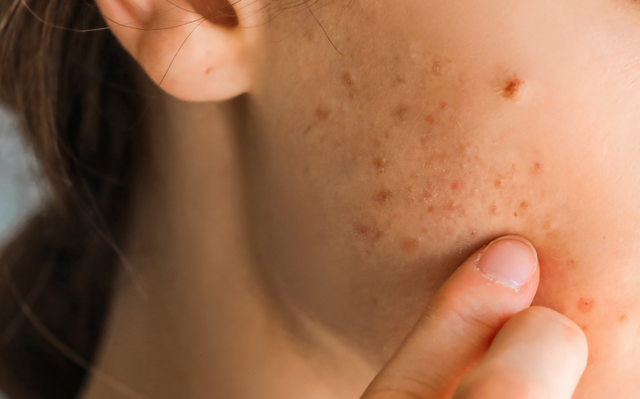Emotional changes during puberty: all about your puberty feels
Puberty is a transformative time that paves the way for some incredible changes within the body. Some changes are easy to spot, while others aren't so obvious. Hair sprouts, limbs grow and hormones shift, but while your body is doing the cha-cha-cha of change, your emotions are having a dance-off, too.Puberty typically begins around age 10 for girls and age 11 for boys but can show up earlier or later for a bunch of reasons. As your body moves through the stages of puberty, you might notice a shift in how you feel about your body, other people and the world around you.
Emotional changes during puberty are powered by rapid growth in your brain — and feeling different is very normal. Unsure about what's ahead? Let's talk about what you can expect, and how to help manage these changes.
Unpacking the mental changes during puberty
When puberty comes knocking, the body and mind shift gears in readiness for a big transformation. Dr Ashwini Gana Baskar, principal GP at Sanctuary Wellness & Medical Centre, explains that "lots of cognitive changes happen during this time, linked to hormonal secretion and sexual function."Thanks to this whirlwind of change, you might notice your emotions and reactions are different to usual. "You might feel angry or sad when things happen because you're trying to form your own identity," she says.
Managing these physical, emotional and mental changes during puberty while navigating life can make things feel pretty big — sometimes even intense. This can lead to lively discussions at home, changes within your friendship group and feelings of pressure at school.
Feeling daring or more adventurous? That's no surprise. As your brain grows, it forms new connections and becomes more sensitive to dopamine, a "feel-good" hormone that cranks up your excitement and makes you more open to taking risks. Before diving into something adventurous, take a pause, and ask yourself if it's safe for you.
Puberty feels checklist
Mood swings: One minute, you're on top of the world. Next, you're down in the dumps. Exercise and doing things you enjoy can help. Sensitivity: If Tay Tay songs suddenly make you cry instead of dance, shifting hormones are probably to blame. Self-care is important when you’re feeling sensitive.
Independence: The urge to make your own choices and explore the world (on your terms) gets stronger. Check in with your parents or carers about options and boundaries to protect your safety.
Self-awareness: Feeling insecure or more self-conscious than usual? Maybe your body is changing, or your first period has arrived. Whatever the reason, your pals probably feel the same way, too.
Decision-making: Puberty is a time when decision-making gets trickier, and you're faced with choices that might affect your future. This can be thrilling and overwhelming at the same time, but you don’t have to face choices alone.
Puberty isn't just about challenges; it's also a time of exciting changes and opportunities. Keep an open mind because fun and adventure are headed your way!
Tips for managing emotional changes during puberty
Here are some of the ways you can manage the big and exciting feelings that come with puberty:Tune into your feelings: Don't push your feelings away – let yourself feel them and explore them, especially during your first cycle. Reach out for help if low feelings don't pass.
Try meditation and mindfulness: Learning how to breathe and meditate can calm your mind and reduce anxiety. Journaling can help to process your feelings, too.
Remember self-care: Do what makes you feel happy. Pump the music, get outdoors or lay in the bath until your feet and hands are wrinkled. The choice is yours!
Move your body: Exercise is a great way to blow off steam and frustration and doesn't have to be full on. A short walk, bike ride or swim can do wonders for your state of mind.
Ride the wave: Try to remind yourself that some days are good and some days suck, but your body is doing incredible things right now.
Ask for space: Tell the people around you if you need space or downtime to process your feelings.
Get enough sleep: Switch off your devices at least an hour before bedtime and practice good sleep hygiene to help nourish your body and mind.
Eat healthy foods: Eating a well-balanced diet will support your body to grow, heal and function.
Dr Ashwin says if you feel really tired but you're eating and sleeping well, it's a good idea to ask a parent to take you for a blood test. Sometimes, puberty can mess with your iron levels.
And always remember — navigating the emotional rollercoaster of puberty is a team effort. Your parents and other trusted adults have been through it, too, so they understand what you're going through. "It's important to talk about family values to help deal with emotional issues," she adds. That way, you can work as a team to set boundaries and get support around peer pressure and relationship issues.
Plan ahead with Modibodi
Puberty is a time of physical and emotional growth, filled with exciting twists and turns, mood swings, and self-discovery. Understanding that emotional changes are normal and getting prepared can make this sometimes bumpy road a whole lot smoother.
Plan ahead by investing in a bundle of leak proof period undies from our teen range. They're cute, comfy, super absorbent and reusable, so you can check those worries off your list.






